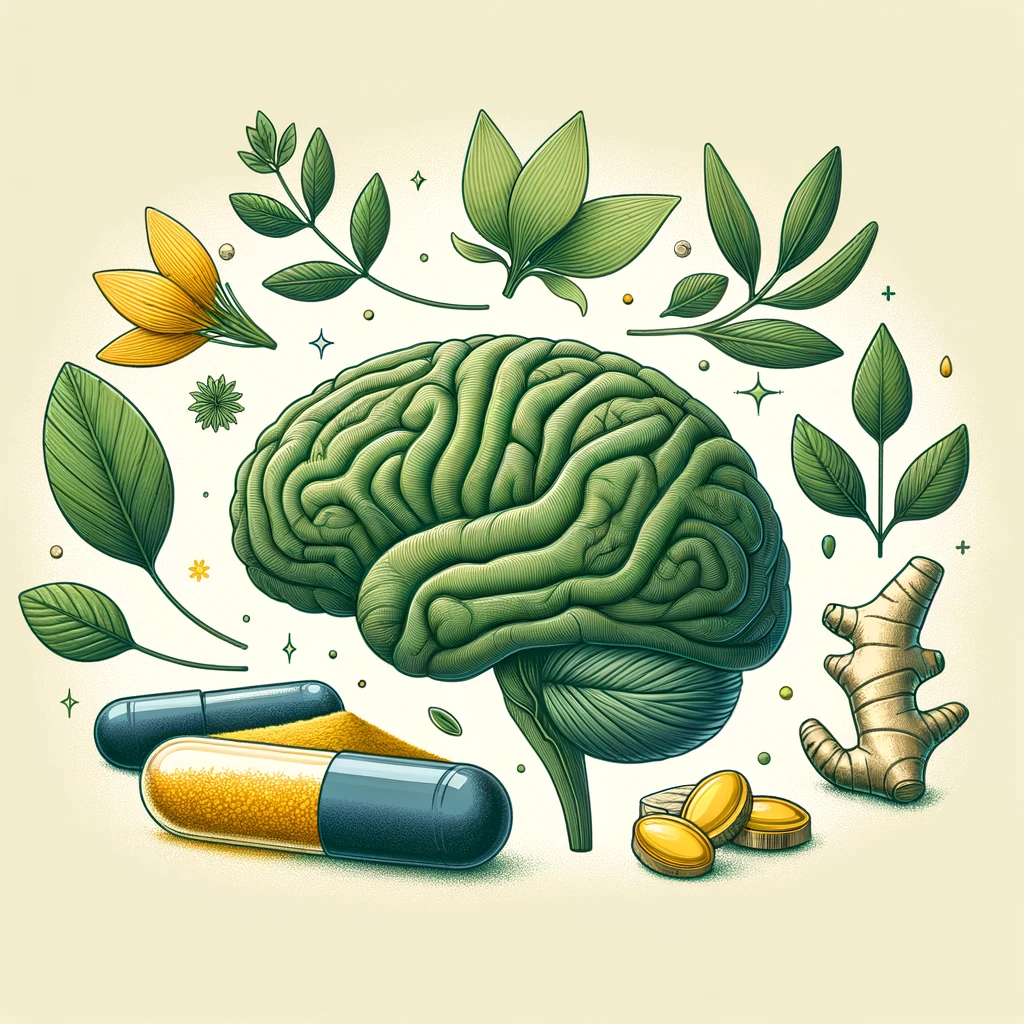Did you know that what you eat and the supplements you take can significantly impact your nervous system health? Nutrition plays a vital role in keeping your nervous system in top shape, influencing everything from cognitive function to stress levels. In this post, we’ll explore how specific herbs and supplements can support and enhance your nervous system health.
Why Nutrition and Supplements Matter:
The foods and supplements you consume directly affect your nervous system, which controls how your body functions and responds to the world around you. A balanced diet, along with targeted supplements, can promote brain health, improve mood, and protect against neurological disorders.
In this article, you’ll discover which herbs and supplements are most effective in supporting nervous system health. We’ll also dive into the science behind their benefits and provide practical recommendations for incorporating them into your daily routine
Overview of Herbs and Supplements that Support Nervous System Health
Ginkgo Biloba:
Known for improving circulation and cognitive function, Ginkgo Biloba is a popular supplement, especially among older adults. Research has shown its potential in enhancing memory and overall mental performance by increasing blood flow to the brain.
Ashwagandha:
An adaptogen that helps the body manage stress, Ashwagandha is effective in reducing cortisol levels, the hormone responsible for stress. Studies indicate that Ashwagandha can promote a sense of calm, making it a valuable tool for managing anxiety and improving mental clarity.
Omega-3 Fatty Acids (Fish Oil):
Omega-3s are essential fatty acids that play a crucial role in brain health and function. They reduce inflammation and support cognitive function, making them a must-have in your diet. Regular intake of Omega-3s has been linked to a lower risk of neurodegenerative diseases.
St. John’s Wort:
Traditionally used to treat mild to moderate depression, St. John’s Wort influences neurotransmitter activity, particularly serotonin, to improve mood. Clinical studies support its effectiveness in alleviating symptoms of depression.
Magnesium:
This mineral is vital for nerve function and is known to reduce anxiety symptoms. Magnesium supplementation has been shown to improve sleep quality and alleviate stress, making it essential for nervous system health.
Turmeric (Curcumin):
A powerful anti-inflammatory herb, Turmeric’s active compound, Curcumin, supports brain health by protecting against oxidative stress and inflammation. It’s particularly beneficial in preventing neurodegenerative diseases like Alzheimer’s.
Vitamin B Complex:
The B vitamins are essential for energy production and maintaining a healthy nervous system. They support neurotransmitter production and overall brain health, making them crucial for mental well-being.
Evidence-Based Benefits and Recommendations
Cognitive Enhancement:
Studies show that Ginkgo Biloba and Omega-3 fatty acids significantly improve memory and cognitive performance. Ginkgo’s ability to increase cerebral blood flow and Omega-3’s role in reducing inflammation contribute to these benefits.
Stress and Anxiety Reduction:
Ashwagandha and Magnesium are both backed by research for their ability to lower stress levels and reduce anxiety. Ashwagandha’s effect on cortisol and Magnesium’s role in nerve function make them powerful tools in managing stress.
Mood Regulation:
St. John’s Wort has been clinically proven to alleviate symptoms of depression by influencing serotonin levels. Its effectiveness makes it a popular choice for those seeking natural mood support.
Neuroprotection:
Turmeric (Curcumin) and Vitamin B Complex offer neuroprotective benefits, with studies highlighting their role in preventing or slowing neurodegenerative diseases. Curcumin’s anti-inflammatory properties and B vitamins’ support for brain health are key factors in their effectiveness.
Incorporating these herbs and supplements into your diet can greatly benefit your nervous system. Start with recommended dosages based on scientific research, and always choose high-quality supplements. Consulting with a healthcare provider before starting any new supplement regimen is crucial to ensure safety and effectiveness.

